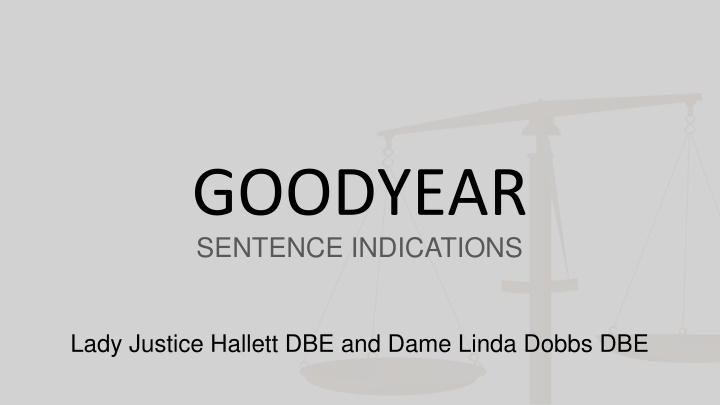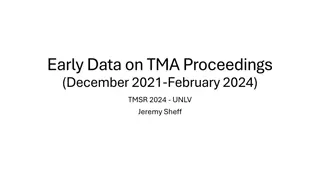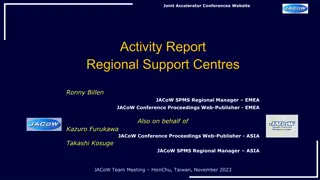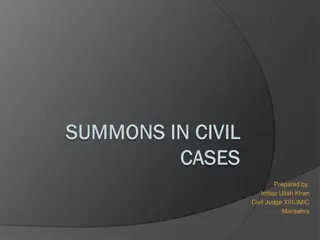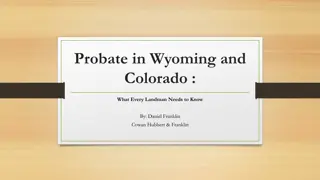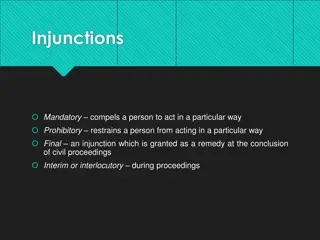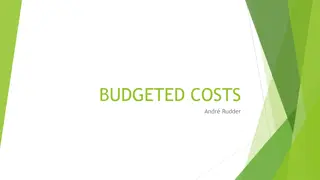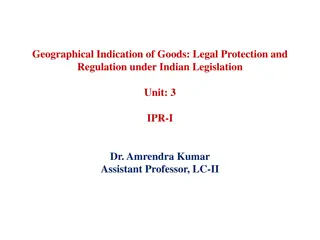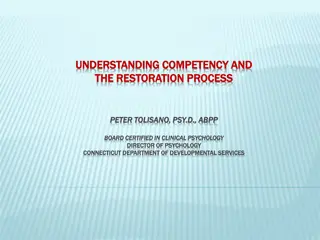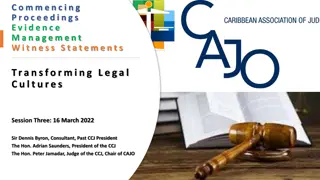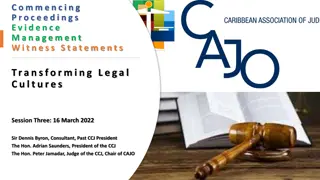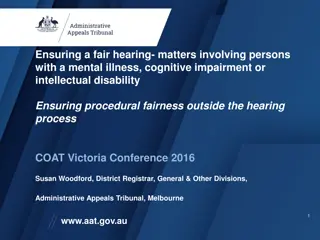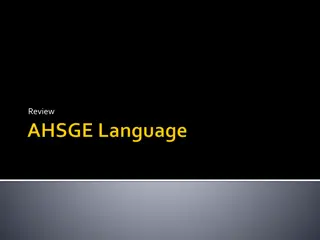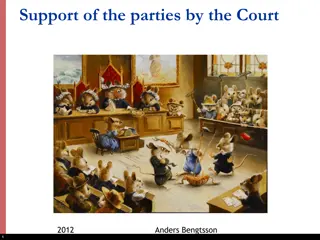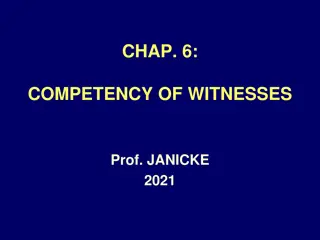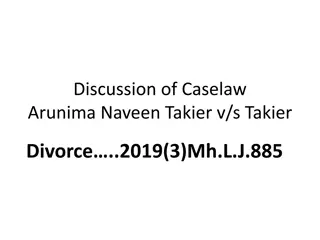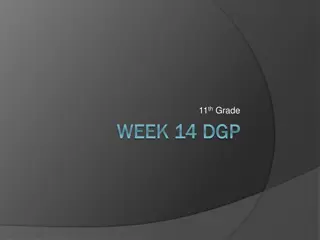Guidelines on Seeking Sentence Indications in Legal Proceedings
In the case of Goodyear, it was established that judges may provide an indication of the likely maximum sentence if the defendant pleads guilty. The process should be initiated by the defense advocate or defendant with written instructions and clarity on the plea basis. Precautions include avoiding seeking indications in uncertain plea situations and ensuring clear understanding by the defendant. Indications are binding unless the defendant fails to plead guilty within a reasonable time after receiving one.
Download Presentation

Please find below an Image/Link to download the presentation.
The content on the website is provided AS IS for your information and personal use only. It may not be sold, licensed, or shared on other websites without obtaining consent from the author.If you encounter any issues during the download, it is possible that the publisher has removed the file from their server.
You are allowed to download the files provided on this website for personal or commercial use, subject to the condition that they are used lawfully. All files are the property of their respective owners.
The content on the website is provided AS IS for your information and personal use only. It may not be sold, licensed, or shared on other websites without obtaining consent from the author.
E N D
Presentation Transcript
GOODYEAR SENTENCE INDICATIONS Lady Justice Hallett DBE and Dame Linda Dobbs DBE
GOODYEAR Goodyear [2005] 2 Cr App R 20, (para 53) establishes: that a judge, if asked, is entitled to give an indication as to the likely sentence. This is ordinarily confined to indicating the maximum sentence s/he would pass if the defendant were to plead guilty at the time the indication is sought. The Basic Principle is to safeguard against creation or appearance of judicial pressure on D. See: St Lucia CPR Part 11.4 .
AUTHORITY DPP v Elvis Richardson ECSC Crim. Claim. No. SKBHCR 2013/0030: Setting out the general approach to Sentence Indications in R v Goodyear: Defendant may seek an indication from the court what is the maximum sentence to be imposed if he were to plead guilty. Such an indication must be given in open court and in the presence of the defendant.
GENERAL RULES The process is started by the defence advocate/defendant. In an appropriate case the judge may remind defence counsel of the right to seek an advance indication. The advocate should have written instructions from the defendant. It should be done at the earliest opportunity.
WARNINGS An indication should not be sought while there is any uncertainty about acceptable plea or factual basis of sentencing. Judge must have access to all evidence relied on by P including D s antecedents and victim impact statements. The judge may ask for more information/reserve position e.g. where reports are expected. Where appropriate must be written agreed basis of plea; if not, judge should refuse to give indication.
WARNINGS (Contd.) Where appropriate must be written agreed basis of plea; if not, judge should refuse to give indication. The judge may give an indication of the maximum sentence he would impose in the event of a plea of guilty at that stage. Indications should not be given on alternate bases e.g. on conviction rather than plea. An indication once given, is binding on the judge and any other judge who takes over the case (save exceptionally)
WARNINGS (Contd.) Judge should ensure D understands only plead if guilty and consequence of indication If D does not plead guilty within reasonable time after indication given, it ceases to have effect: ( R v. Patel [2009] 2 Cr App R 20). Until D pleads guilty no reference to indication should be made by press. An unrepresented D may seek indication. Judges/prosecutors should be wary of informing unrepresented D for fear of putting under undue pressure.
WARNINGS (Contd.) Hearings should normally be in open court; there must be proper record of proceedings with D present, preferably both sides with legal representation. Judges should not enter into negotiations or become involved in discussions which link the acceptable plea to likely sentence to be imposed. Deviation from ground rules can cause problems: R v Omole 2011 EWCA Crim 1428.
REASONS TO REFUSE Judge has discretion whether to give an indication and whether to give reasons. The judge may refuse to give an advance indication, e.g.: where not in proper position to assess true culpability of D or differing levels of responsibility between co-Ds; where D is already under pressure/ particularly vulnerable; where D may not understand that he should not plead guilty unless he is guilty; or in a multi handed case, an indication to one D may put undue pressure on others.
